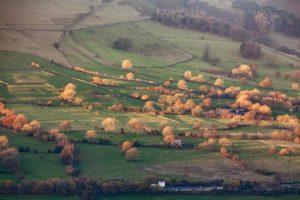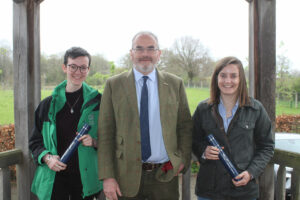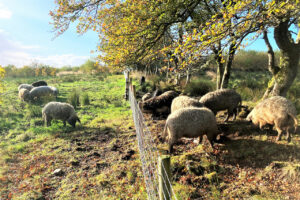Since leaving the EU, the government has introduced three new environmental land management schemes that farmers can get involved in and can be rewarded for participating in. The Local Nature Recovery scheme, Landscape Recovery scheme and Sustainable Farming Incentive will be critical in halting the decline in species by 2030, bringing up to 60% of England’s agricultural soil under sustainable management by 2030, and restoring up to 300,000 hectares of wildlife habitat by 2042.
An initial rollout/pilot of the Landscape Recovery scheme (the most relevant for our members) and the Sustainable Farming Incentive will begin in 2022, while the Local Nature Recovery scheme will have a phased introduction from 2023.
Find out more
Announced at the Oxford Farming Conference by the Environment Secretary, George Eustice, the Landscape Recovery scheme will shortly open for applications, with around 15 projects that focus on recovering England’s threatened native species and restoring England’s rivers and streams will be selected.
These pilot projects are expected to deliver:
- the creation of 10,000 hectares of restored wildlife habitat
- carbon savings between 25 to 50 kilotonnes per year – roughly equivalent to taking between 12,000 – 25,000 cars off the road
- improved status of around half (45-57%) of the most threatened species in England, including the Eurasian curlew, sand lizard and water vole
George Eustice said:
“We want to see profitable farming businesses producing nutritious food, underpinning a growing rural economy, where nature is recovering and people have better access to it.
Through our new schemes, we are going to work with farmers and land managers to halt the decline in species, reduce our greenhouse gas emissions, increase woodland, improve water and air quality and create more space for nature.
We are building these schemes together, and we are already working with over 3,000 farmers across the sector to test and trial our future approach. Farmers will be able to choose which scheme or combination of schemes works best for their business, and we will support them to do so.”
Our ICF Representative on ELM and Agricultural Transition, Neville Elstone MICFor, said:
“We must and will keep the pressure on Defra to ensure that owners are paid for the provision of ecosystem services. Trees, woodlands and forests all do this in spades and reward for this service will drive increased uptake both for creation and management.
My biggest concern is that Defra are defaulting back to payment based on the capital cost of developing something initially not for the on-going delivery of a service to society. At the moment I’m not seeing enough evidence in the ELM schemes to indicate the right direction of travel.
We will continue to work with Defra and partners to get this right, for this once in a generation opportunity to enable trees and woodlands to deliver all we know they can.”
These schemes are voluntary and will be kept under review. For more information on the new Environmental Land Management schemes, visit this page.






